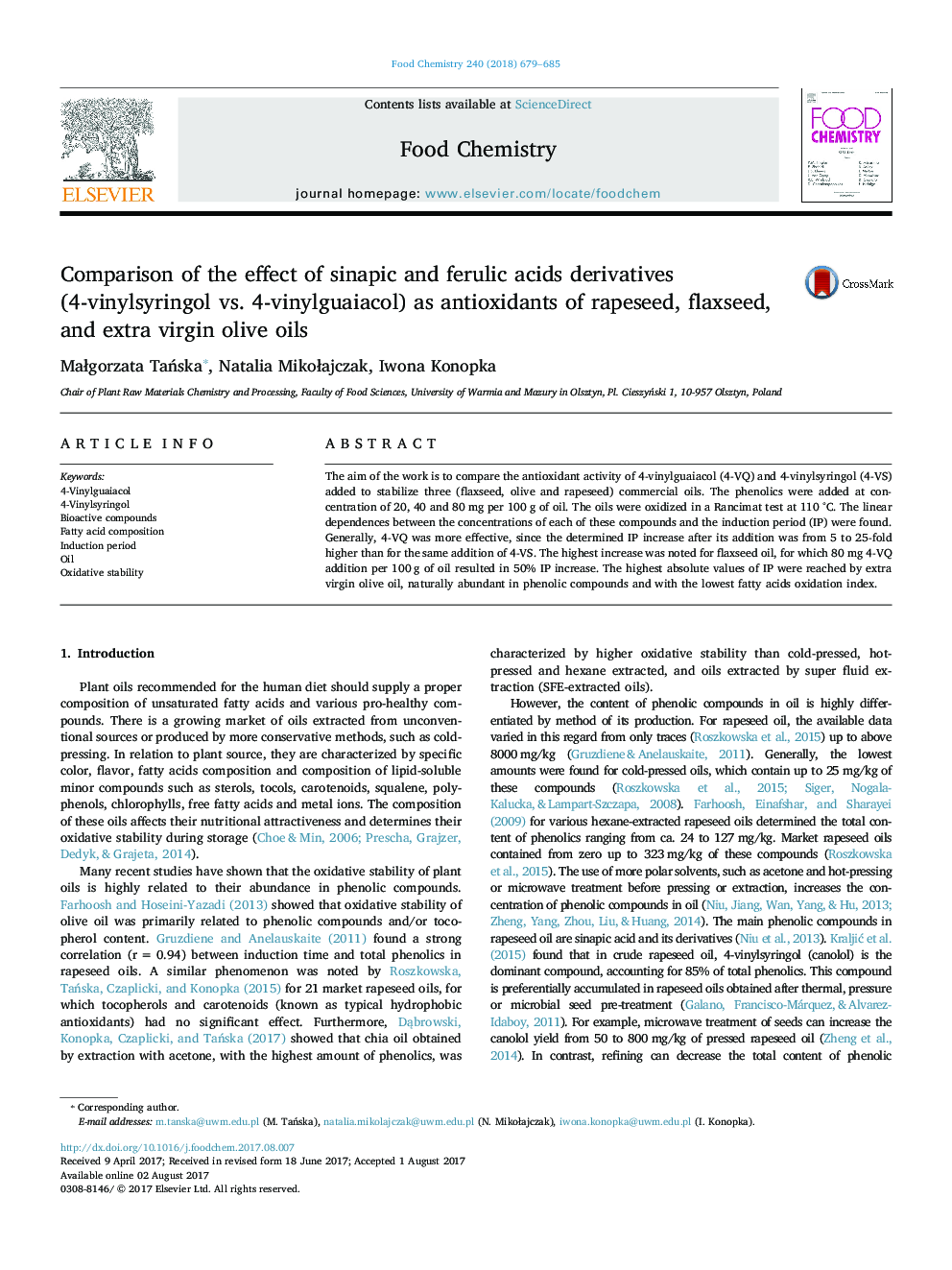| Article ID | Journal | Published Year | Pages | File Type |
|---|---|---|---|---|
| 5132509 | Food Chemistry | 2018 | 7 Pages |
â¢4-Vinylguaiacol (4-VQ) and 4-vinylsyringol (4-VS) were added to stabilize oils.â¢4-VQ was more effective antioxidant than 4-VS.â¢Induction period (IP) increase was the lowest for olive oil and the highest for flaxseed oil.â¢4-VQ in similar degree affected IP of refined and cold-pressed rapeseed oil.
The aim of the work is to compare the antioxidant activity of 4-vinylguaiacol (4-VQ) and 4-vinylsyringol (4-VS) added to stabilize three (flaxseed, olive and rapeseed) commercial oils. The phenolics were added at concentration of 20, 40 and 80 mg per 100 g of oil. The oils were oxidized in a Rancimat test at 110 °C. The linear dependences between the concentrations of each of these compounds and the induction period (IP) were found. Generally, 4-VQ was more effective, since the determined IP increase after its addition was from 5 to 25-fold higher than for the same addition of 4-VS. The highest increase was noted for flaxseed oil, for which 80 mg 4-VQ addition per 100 g of oil resulted in 50% IP increase. The highest absolute values of IP were reached by extra virgin olive oil, naturally abundant in phenolic compounds and with the lowest fatty acids oxidation index.
